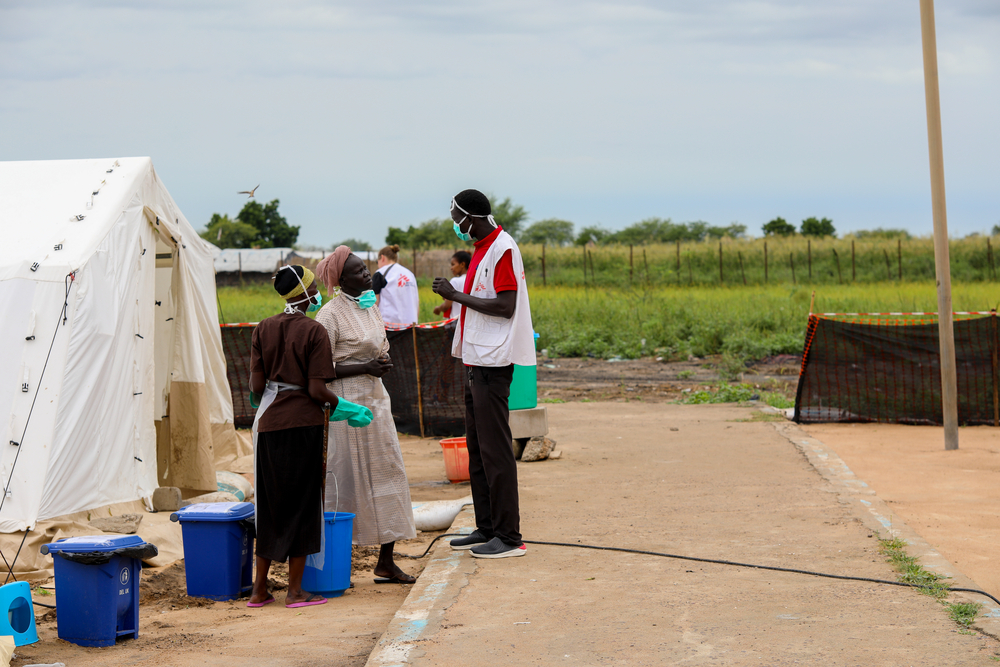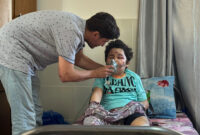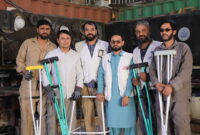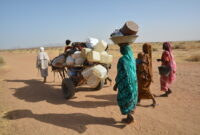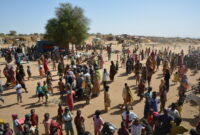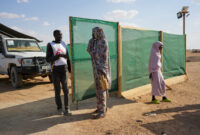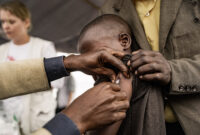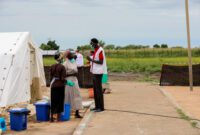South Sudan : Malaria and malnutrition rise among returnees
Doctors Without Borders/Médecins Sans Frontières (MSF) is urgently calling for an improved medical and humanitarian response for people fleeing conflict in Sudan and entering South Sudan through Renk, a town located in the northernmost state of Upper Nile.
Since the fighting erupted in Sudan, around 290,000 individuals have entered South Sudan — 80 per cent of them through Joda border in Upper Nile state. Although the formal and informal transit centres in Renk are ideally a temporary stopover for them to move further into country, the returnees can spend weeks or even months there. This stay is often exhausting and painful, as they have limited access to food, shelter, water, sanitation and healthcare.
MSF is supporting Renk civil hospital in the measles isolation ward, an inpatient therapeutic feeding centre and a paediatric ward. In the wake of an influx of patients, the teams have expanded the capacity of the wards from 22 to 45 beds. Since July, MSF has admitted 232 patients for malnutrition and treated 282 cases of measles requiring hospital care.
“Aid is woefully inadequate in Renk as compared to the needs that are growing every day. We are calling on the humanitarian and medical groups to do more by strengthening medical and humanitarian activities at the entry point and at transit centres. Basic healthcare services should be made available at all times on the border for those coming with medical conditions. A systematic vaccination catch-up should be also available 24/7 on the border given the current low vaccination coverage in Sudan and ongoing outbreak of measles in both countries,” says MSF country director in South Sudan, Jocelyn Yapi.
Limited food supply and deplorable living conditions
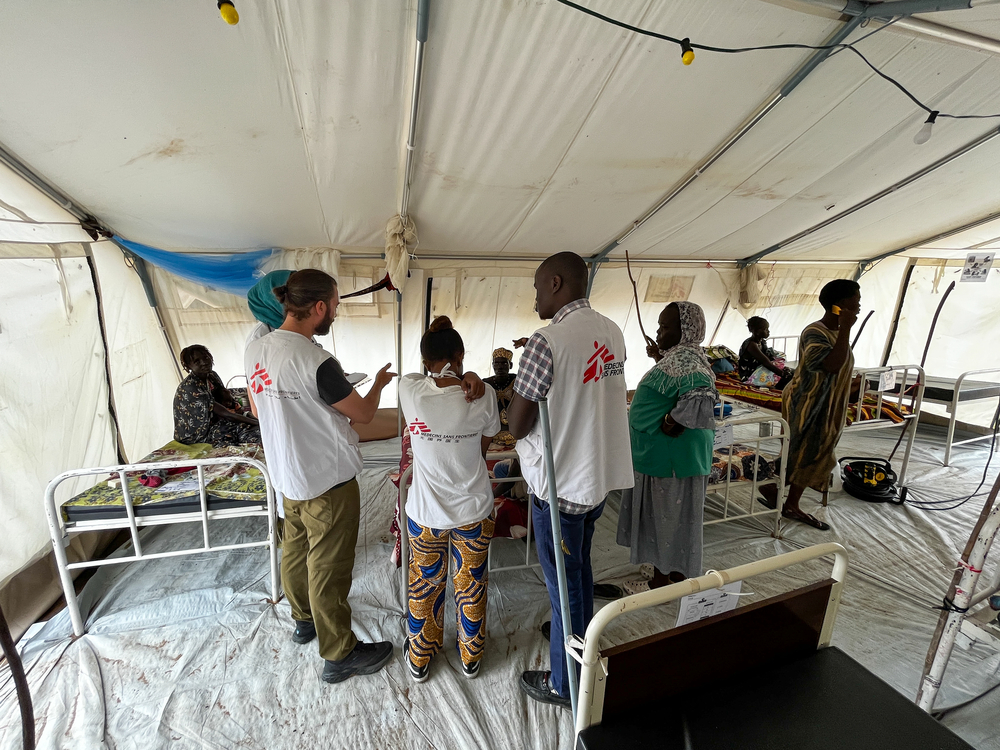
Many people, especially children, are arriving to the border in alarming health conditions suffering from deadly diseases like measles or malnutrition requiring immediate medical care. Amidst the rainy season, MSF medical facilities in the area are recording a 70 per cent positivity rate of malaria, a disease that already kills more people than any other in South Sudan.
“Malnourished children in particular must be given urgent nutritional support on the border and at once transferred to the medical facilities,” says Yapi. “Relief items such as mosquito nets, plastic sheets and other essential non-food items should be provided at the border so nobody who is in need is missed out.”
Although people there receive a one-off cash distribution of $16.50 CAD per person, considering the high prices—a normal meal on average is sold for $2.75 CAD in Renk —this assistance is hardly enough to afford one meal a day for a week. People are staying weeks and at times months without further cash assistance and there is no regular food distribution by the humanitarian organisations or the authorities in the area.
“I am selling my clothes for 2,000 South Sudanese pounds ($2.75) per piece to buy food. I have sold six of them and left with the remaining two to wear,” says Marta Manher, a mother of six, living at Zero, one of the unofficial settlements for returnees in Renk.
Limited food and deplorable living conditions are having a toll on people’s health status. In two of mobile clinic sites run by MSF at Zero and Abukadra, the teams are recording 300 medical consultations a day and seven out of 10 are malaria patients. Most people there live under open sky or in temporary shelters made of clothing. In this area, patches of stagnant rainwater provide ideal breeding places for mosquitos, and people have no mosquito nets or other means of protection available to them.
An urgent humanitarian response is needed
In the Renk civil hospital where MSF supports measles isolation ward, 90 per cent of the patients are returnees and unvaccinated. On top of that, some severely sick patients are being transferred without provision of medical care to Malakal, a 48 to 72 hours journey on boats without medical care, water or food. Deaths have been recorded on boats and MSF teams are receiving severely sick patients at Bulukat transit centre, resulting in a higher mortality rate in the facilities in Malakal.
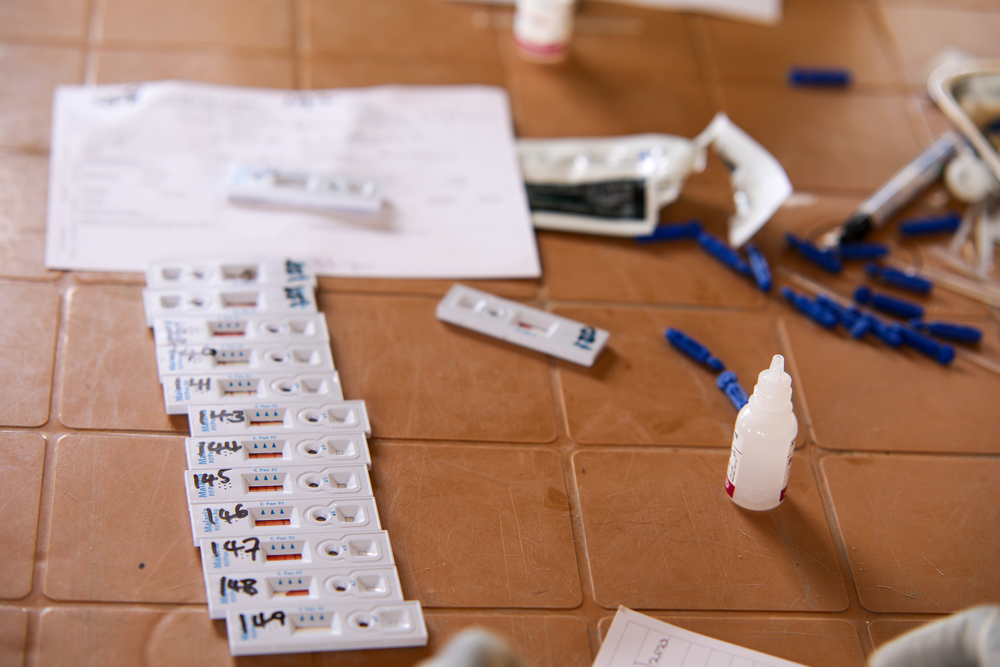
“The community of returnees is too vulnerable. Not only insufficient food and drinking water, they do not have shelters as they use pieces of cloth to protect themselves from the sun and rain. As we treat malnourished children in the hospital, we see that many mothers are also malnourished,” says Abraham Anhieny, MSF medical doctor in Renk.
Years of conflict have already caused one of the world’s largest humanitarian crises in South Sudan. As the country already suffers from regular disease outbreaks, flooding, displacements and high rates of malnutrition, the arrival of returnees is another burden, and the current response is incapable to absorb additional needs. The country requires more attention and support to deal with the ongoing humanitarian crisis, and another emergency caused by the conflict in Sudan.
